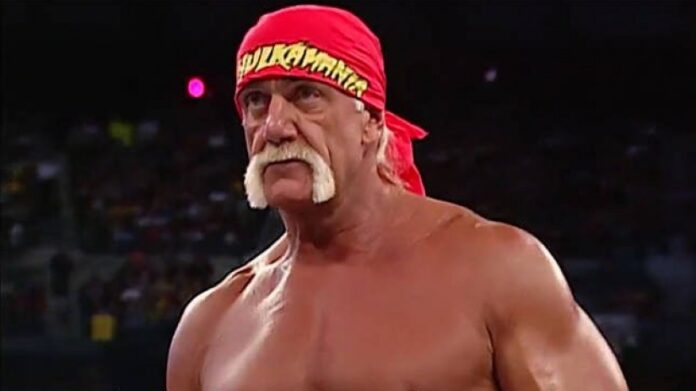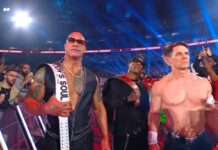
As PWMania.com previously reported, WWE Hall of Famer Eric Bischoff recently released “Grateful,” his autobiography follow-up to 2006’s “Controversy Creates Cash” book. Grateful, co-produced with “NITRO” author Guy Evans, delves into Bischoff’s post-2006 career, including his WWE return, AEW involvement, TNA experience, and more.
On Amazon, the book is still ranked #31 in the “Wrestler Biographies” category.
The following excerpt is from the book, with Bischoff discussing his relationship with WWE Hall of Famer Hulk Hogan:
Terry was always surrounded by people that were very supportive of him, people that were ‘back slappers’, people that would tell him all the things that he wanted to hear. They would really play it up and act like the life of the party around him, mainly because they were looking to get something from him. I didn’t approach our relationship in the same way – and I think he recognized that eventually.
That said, I think Terry really recognized that fact once I was no longer in a position to get anything from him. After WCW was sold, and then we both worked together again at the WWF, his divorce from Linda began a very devastating period in his life. Add to the mix his physical challenges – and the emotional fallout from Nick’s terrible car accident – and we started spending a lot of time on the phone.
Things had got to the point, as he has talked about in his own book and public statements, that Terry found himself alone at home, pointing a gun to his head. He was crying out for help due to the pain that he was experiencing at that time. It got so bad that I said to Loree, ‘I’m gonna go down to stay in Florida with him.’
When she asked me how long I planned to stay, I said, ‘Until I’m sure he’s ok.’
Prior to that decision, a couple of things had come up where Terry had called me on the phone. I would ask him what was going on, and I could tell over the phone that he was pilled up (again, I want to emphasize, this wasn’t recreational stuff that he was doing. He was being prescribed some of the most powerful stuff going). While I can understand a doctor – particularly before people understood how devastating Oxycontin or Vicodin could be – looking at Hulk Hogan, a 300-pound guy, and prescribing those things to him for the pain, it had the effect of changing Terry.
He was becoming a different person, and I was starting to get afraid for him – afraid of his potential choices and decisions. As he had moved out of his house, he was living in a condo on the beach in Clearwater, and he was lonely. He was isolating himself more and more, which isn’t terribly uncommon among people who go through the kind of issues he was facing.
I’ve seen it before – people get deeper and deeper into depression, and one of the first things that happens is a withdrawal from being around other people. They want to wallow in their own misery, but ideally away from others – and that was what was happening with Terry. Based on the tone of our conversations – and the subjects of those conversations – I could tell that he needed somebody to be with him.
Loree was very supportive of me going to Florida. We were lucky in that we had the financial means to allow for it, but equally, she was concerned about my friend, too.
Aside from returning home every other weekend or so, I basically lived with Terry, in that condo on the beach, for a period of about two or three months. I now had a front row seat to witness what he was going through, and it was tough. The pain was getting worse by the day, and by the time he started having trouble walking, I really started feeling horrible for him.
After all, here was this guy – Hulk Hogan, remember – who had basically been the epitome of strength and power for so long. Now I’d be walking next to him and thinking, ‘This guy’s gonna be in a wheelchair in six months.’ It was that bad.
In the beginning, things were just out of control, at least in the sense that Terry didn’t know which way to turn, or even what to do. He couldn’t make anything go away simply because he was Hulk Hogan, or because he had the money to do so – none of those things mattered.







